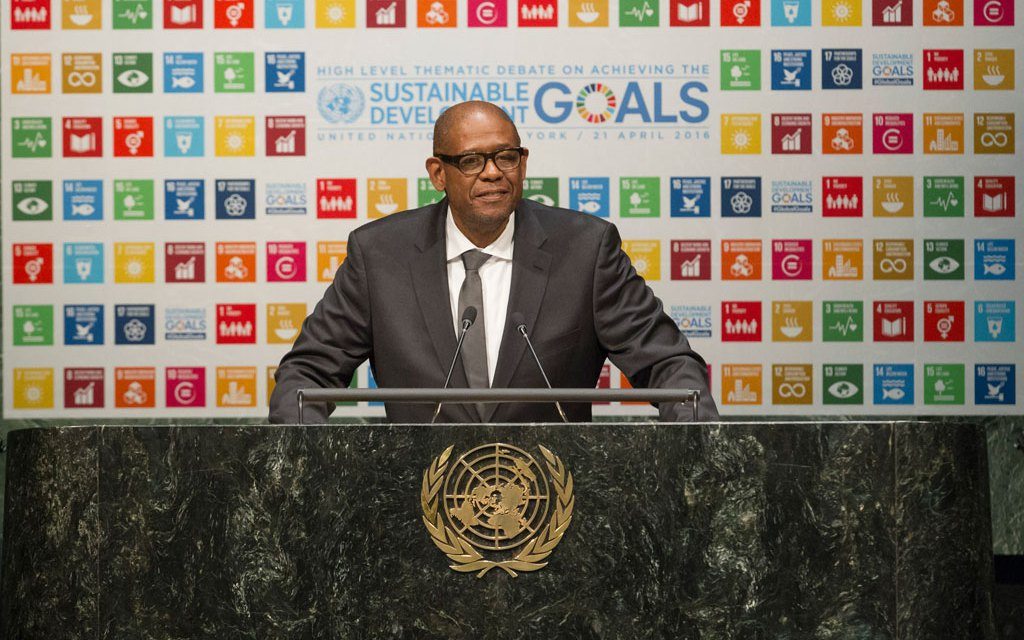Knowledge and information have become transformative dimensions of our existence and are key drivers behind the implementation of all the Sustainable Development Goals (SDGs). From government to small villages, knowledge and information guides what people do and how they do it. The 2030 Agenda recognizes the need to develop knowledge societies where everyone has opportunities to learn and engage with others, which starkly highlights the need for access to Information and Communication Technologies (ICTs). This is my reading of SDG 9, which calls on states to “build resilient infrastructure, promote inclusive and sustainable industrialization and foster innovation.”
Yet, in many places, people and communities cannot access computers or the Internet. In the developed world, for example, over 80% of individuals use the Internet; in the developing world, less than 35% do. The remaining 65% are often poor and remote communities or disenfranchised groups. They may be fragile communities struggling every day to recover from years of conflict. All these communities need access and I believe it is especially true of conflict-affected or post-conflict communities.
The vision I implement through my Foundation, the Whitaker Peace & Development Initiative (WPDI) is that connectivity can help vulnerable communities on their path to peace and resilience. Peace is best practiced by individuals integrated into thriving communities, and communities thrive when their members exchange among themselves and communicate with those outside. This implies that, today, in this age of social media, peace and connectivity condition each other. Connectivity means that people and communities have the skills, the capacity and the will to interact and engage in respect-driven dialogues, that they can access the resources to do so, and that they have the technology to help bridge physical and cultural distances.
A key aspect of the programs I run through WPDI is the establishment of Community Learning Centers (CLCs) in vulnerable communities in South Sudan and Uganda. At the CLCs, young people and community members can access computers and connect to the Internet, as well as take courses in ICTs, literacy, business, conflict resolution and library services. Since 2015, WPDI has established nine CLCs in South Sudan and two in Uganda, with an average of 150 monthly users per center. I expect those numbers to grow as we open more centers and as community people hear from their peers about the CLCs and what they can bring to them. To me, success is when a center becomes a community hub, a place on peoples’ map and from where they know they can conquer the world.
This is the reason why ICTs are central to my projects, beyond the CLCs themselves, which are only an aspect of our primary goal of empowering young people to foster lasting peace and sustainable development in vulnerable communities. We train groups of young people from conflict- and violence-affected communities in conflict resolution, entrepreneurship and ICTs so they can become peace makers and mediators and develop educational and economic projects; we also equip them with technology so they can reach out to each other, form friendships and connections, and brainstorm their responses to crises in real time. The CLCs are part of this architecture where technology and learning are fully imbricated.
I see it as obvious that SDG 9—or indeed the whole 2030 Agenda—cannot be attained without massive ICT investments in local populations, especially in remote and vulnerable communities. It is also clear to me that we cannot achieve anything sustainable if we disconnect technology from learning, and this relates particularly to SDG 4 on quality education for all. Multiple issues are at stake here. Firstly, people must learn how to use technology and information in ways appropriate to their needs and aspirations. The relevance of ICTs is not just in access or even in basic command skills: ICTs are truly relevant if they help us innovate in our daily lives. Technological innovation is successful when it supports social innovation.
The other aspect of education I see as important is the need to promote civic uses of ICTs. If we misuse the Internet and social media, they can become echo chambers for fake news, hoaxes and hate speech. In other words, our efforts cannot focus solely on access and technological issues. Quality education is of course about performance, but it is also about the capacity of students to understand their world and to respect other people and cultures. Technology can help us become better people if education teaches that communication must be a means for genuine dialogue. We should always bear in mind that the role of education is to prepare citizens.
Forest Whitaker is also UNESCO Special Envoy for Peace and Reconciliation.

